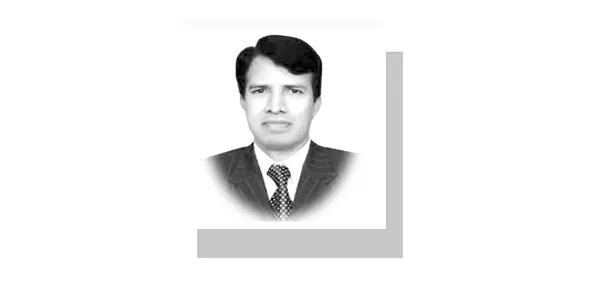IN the realm of power politics, hybrid warfare is widely debated in the academic circles as well as the strategic community of Pakistan. The concept of hybrid warfare is not new, however the strategies being used are new, highly technical and sophisticated. The experts of this form of warfare perceive that the 21st century will be governed by hybrid warfare; a total transformation in the format of traditional warfare. Primarily this warfare is a military strategy which combines cyber warfare, irregular warfare and political means. The distinct patterns, the modus operandi used in hybrid warfare include: spreading fake news through highly known media houses, making use of diplomatic means, law-fare and foreign electoral intervention through construction of new narratives. Precisely, hybrid warfare is non-kinetic operations with subversive efforts where the aggressor intends to avoid attribution and retribution.
Pakistan is a classic example which has physically experienced the odd of hybrid warfare, launched by rival powers; mainly the eastern and western neighbours in collaboration with many international actors. The impact of hybrid warfare was more pronounced after Pakistan experienced and combated the war on terror, yet there are more reasons for targeting Pakistan by its foes. The disintegration of Pakistan in 1971 can be studied as a classic case of hybrid warfare, though the format, techniques and methodologies may have been quite different. It was the first test case given to RAW by the then Indian Prime Minister, Indira Ghandi. RAW once again expanded its networks of hybrid warfare within and outside Pakistan towards the beginning of the 21st Century where India found the international environment in its favour.
The Indian Chronicles exposed by EU DisinfoLab, a few years ago, indicated the level of its deep drive against Pakistan. This 15-year long operation spreading over to 119 states was a clear form of hybrid warfare against Pakistan. It was indeed the disinformation campaign against Pakistan and Pakistani contribution towards regional and global peace. THE EU DisinfoLab was a warning to the world about the bigger Indian designs of misleading the international community for its own vested interests. It is an in-depth inquiry report about Indian strategic usage of its own and international media, prominent personalities and international NGOs against Pakistan. In the entire research of EU DisinfoLab, Pakistan was the primary target of the Indian media outlet.
The 15-years long misleading media outlet headed by Srivastava Group started working in 2005 and its planning stage took many years before formal start. It was amplified by Indian news agency, ANI and continues working despite its exposure by EU DisinfoLab in early December 2020. This Group has been misleading the civilized international community for 15 years relentlessly. The operatives of this network have slowly and gradually penetrated into five major international domains; international media, the NGOs and MNCs; educational system of Europe and America, international financial institutions and government functionaries throughout the world. In 2011, Senator Chuck Hagel, US Secretary of Defense, disclosed during his address at Cameron University that India had been using Afghanistan as a second front against Pakistan. This fact has long been known to the Pakistani security establishment and Pakistan has raised it at various forums worldwide.
Along with the resurgence of militancy and terrorism from Afghan soil, after Taliban took over Afghanistan in 2021, a sudden rise was noted in the campaign of politicization of Pakistani Military at the level of various political forces, several non-state actors and social media groups. These groups make use of mainstream as well as the social media for their disinformation campaigns to defame and politicize Pak Army and its premium intelligence agency in particular. This campaign had two dimensions: domestically the politicization of Pak Army aims at defamation of this institution, since it has been the most popular institution of Pakistan, loved by masses ever since Pakistan came into being. Externally it appears that after having failed in their strategies and efforts of weakening Pakistan through direct approach, the international spying networks have adopted indirect strategies to weaken Pakistan and its military. These strategies are not new, rather have been used by ancient military strategists like Carl Von Clausewitz and Sun Tzu. These strategists and many others have advised their governments to formulate strategies to defeat your enemy from within. Defeating the enemies from within have many formats and strategies like: creating fault lines, causing split, defamation and humiliation, hatching plots and conspiracies, politicization of key institutions and causing hatred against institutions of national security.
The distinctive feature of the future battlefield is war of narratives, perceptions and opinion making being implemented through hybrid warfare. In this form of warfare nation states would confront each other by using new and innovative technologies. This warfare is all about the new military strategy which indeed employs all means to subvert and win over the rivals. In fact, it is a blend of military and political warfare which make use of conventional and unconventional means, cyber warfare, irregular warfare and other means for influencing the target areas.
In the last few years through the use of hybrid warfare, launched through social media, some mainstream media groups and human rights organizations, the hostile forces have been widely influencing the masses particularly the youth in Pakistan. They are propagating pessimistic narratives against Pakistan and its key institutions through social media. Therefore, let’s not be carried away by the vested interests of these groups in the name of freedom of information and freedom of expression. The government must formulate strict policies to control the impacts of hybrid warfare on Pakistani society.
— The writer is Professor of Politics and IR at International Islamic University, Islamabad.
( drmkedu@gmail.com)










